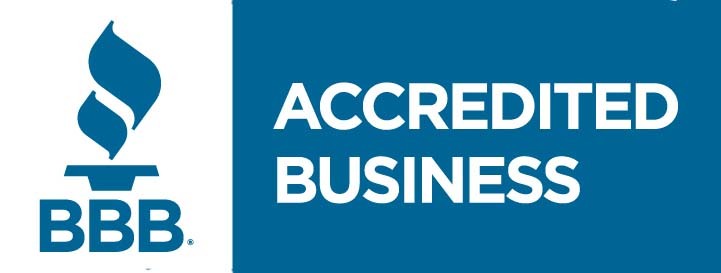Bee, Wasp, Hornet Removal North Florida
Protect your family and pets from painful stings with Quick Catch’s expert removal services.
Stressed about wasps or hornets buzzing around your home? Quick Catch offers fast, safe removal to protect your family, pets, and property from stings and potential damage – call today for a free quote and reclaim your peace of mind!
Our expert team serves Jacksonville and surrounding North Florida areas, including Duval, St. Johns, Clay, Putnam, Baker, and Nassau counties.
Call Now for Quick Service (904) 530-0595Call Now for Quick Service (904) 530-0595
Quick-Catch Offers Fast Wasp & Hornet Removal and Future Problem Prevention
Why Choose Quick Catch?
Don’t Risk Stings or Property Damage: When wasps or hornets take up residence near your home, it can be a real safety hazard, especially for those with allergies or curious pets. Quick Catch offers the peace of mind you deserve:
- Fast & Safe Removal: Our experienced professionals will safely remove the nest, minimizing the risk of stings and ensuring your family and pets are protected.
- Years of Experience: Our team is highly trained and equipped to handle any wasp or hornet situation effectively.
- Same-Day Service (depending on availability): We understand the urgency of wasp and hornet problems, which is why we prioritize quick response times.
Reclaim Your Outdoor Space: With Quick Catch, you can get back to enjoying your yard without worrying about wasps or hornets buzzing around. Call us today for a free quote and experience the Quick Catch difference!
Call Now for Quick Service (904) 530-0595Call Now for Quick Service (904) 530-0595
FAQS
What’s the difference between bees, wasps, and hornets?
Bees, wasps and hornets all belong to the same order of insects, but they are different from each other in both appearance and behavior.
Bees feed on pollen and nectar, and therefore play a crucial role in pollination. They are generally solitary, living in nests under the ground, but honeybees and bumblebees live in communal hives with a complex social structure. Their bodies are stout and hairy-looking with relatively thick legs. While they are not aggressive, they can sting when threatened, but it does cause them to lose the stinger.
Wasps are generally social and live in colonies, unlike most bees. Some colonies (and most solitary wasps) nest either above or below the ground, while some build complex paper-like structures which they attach to trees or under the eaves of houses. Their bodies are narrow with skinny abdomens, and they are hairless. They are able to sting multiple times.
Hornets are actually a type of wasp. Hornets are technically not native to North America, but were accidentally introduced to eastern North America about the middle of the 19th century.
Common types of bees in Florida
- Andrenidie: mining bees
- Apidae: bumblebees, carpenter bees, long-horns, and much more
- Colletidae: plasterer bees
- Halictidae: sweat bees
- Megachilidae: leaf cutter and mason bees
- Melittidae: a small family of bees with only two species in Florida
Common types of wasps and hornets in Florida
- Paper wasps
- Yellow-jackets
- Thread-waisted wasps
- Bald-faced hornets
- European hornets
How does Quick Catch remove bees, wasps, hornets?
Quick Catch will use one of three methods to remove or contain a nuisance colony or swarm.
Swarm trapping catches and contains a swarm before it has a chance to move into an area that would be difficult to access once the insects move in. This is a preventive measure that involves strategically setting traps to lure them away from potentially problematic nesting areas.
Swarm removal involves luring a swarm (being careful to include the queen) into a hive box for relocation.
Colony removal is necessary when a colony is well-established, especially if they have built into an area where they simply can’t be allowed to remain, such as a in building or near a playground. For this method, the colony nesting site must be located, and all the contents removed from the cavity to prevent any further pests from being attracted to the area. Often, the area must be resealed or repaired once the colony is gone.
How long will it take to remove bees, wasps, hornets?
Depending on the size of the colony, bees can take about two or three days or maybe a bit longer to fully die off. Because of this, we recommend that our clients allow seven days after treatment before they can expect to stop seeing bees flying back and forth from the area.
For wasps and hornets, expect to see activity near the nest area for the next one to three days. If you continue to see wasps or hornets after this time, it most likely is a new group of insects coming to build a new nest or colony. If this appears to be happening, Quick Catch can assist you in finding ways to prevent this new population from taking up residence in your area.
How do you detect a bee, wasp, hornet problem?
While it’s common to see flying insects in our daily lives, especially here in Florida, there are are few ways to know if bees, wasps or hornets are becoming a problem that requires professional help. Here are a few signs to look for.
- Swarming insects behave differently than the occasional bee buzzing back and forth on a sunny
day. If you notice a group of flying insects concentrated to a certain area, especially if they are
stinging people or pets who come near, you most likely have a swarm or colony. - A visible nest can be made of paper or mud, and will usually be located on a tree limb or under the
eaves of a house or shed. - Sawdust or mud outside a tunnel or hole in wood is often a sign of termites or carpenter ants,
but it can also indicate the presence of wasps. If you notice anything resembling chewed wood or
daubs of mud around you home, contact us right to get help assessing what may be causing your
problem.







